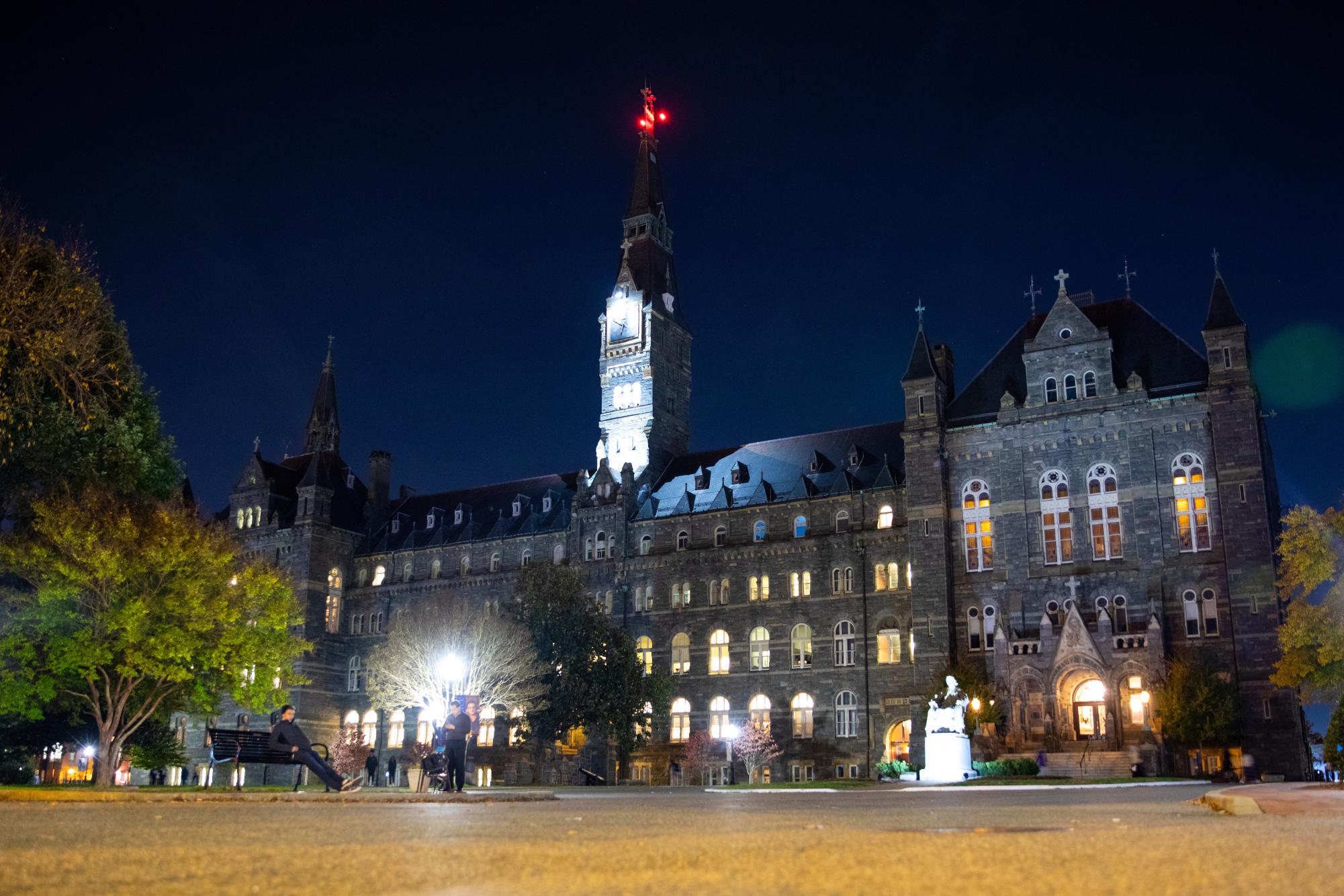Georgetown University ranked 129th out of 257 colleges and universities in an annual ranking of freedom of speech and expression on college and university campuses.
The Foundation for Individual Rights and Expression (FIRE), a controversial nonprofit dedicated to defending the freedom of speech and expression, released the sixth annual edition of its College Free Speech rankings. The 2026 report ranked Georgetown 111 spots higher than its 240th ranking in 2025 with a 57.3 overall score, over double the 2025 score.

A university spokesperson said Georgetown remains committed to protecting community members’ right to free expression and speech on campus.
“Georgetown’s long-standing Speech and Expression policy protects the fundamental right of members of our community to free expression, dialogue and academic inquiry,” a university spokesperson wrote to The Hoya. “We respect the rights of members of our community to express their personal views and are committed to maintaining the values of academic freedom and serving as a forum for the free exchange of ideas, even when those ideas may be controversial and objectionable to some.”
“Georgetown is committed to ensuring that all members of our community have a safe and welcoming place to learn and receive the support they need to do so,” the spokesperson added.
FIRE surveyed student experiences and analyzed each school’s official student expression policies. The 2026 report featured a revised scoring method by assigning colleges bonuses for adopting the Chicago Principles, a set of free speech policies released in 2015 by the University of Chicago that many other universities have adopted. FIRE also added bonuses for universities that issued statements of institutional neutrality, committing to not take stances on social and political issues as an organization.
Georgetown adopted the Chicago Statement for Free Speech in 2017, but the university has not adopted an institutional neutrality statement. According to FIRE, the Chicago Statement is a strong defense of free speech at academic institutions.
FIRE also considers speech and expression controversies on campuses, including attempts to block speakers from coming to campus. Georgetown had three total speech controversies, all considered deplatforming, according to FIRE. In 2025, the postponement of the Georgetown chapter of Students for Justice in Palestine’s speaking engagement with Ribhi Karajah resulted in a subtraction of one point from Georgetown’s overall score. Karajah — who is a member of the Popular Front for the Liberation of Palestine, a left-wing extremist pro-Palestinian organization — spent time in prison for his involvement in a roadside bombing.
FIRE has faced criticism for financial relationships with conservative think tanks such as the Charles Koch Institute, which promotes conservative economic policies. The nonprofit also takes donations from center-left organizations such as the Knight Foundation, a free speech group, and Bloomberg Philanthropies, which donates to a variety of political and philanthropic causes.
FIRE reported increases in Georgetown’s rankings in five out of six categories: comfort expressing ideas, self-censorship, disruptive conduct, administrative support, openness and political tolerance. Georgetown’s score for self-censhorship did not change.
Kendan Hopkins (SFS ’29) — a member of Georgetown University Right to Life, a student organization that advocates against abortion — said he was surprised by other students’ comments while tabling with Right to Life.
“I’ve never been cursed at, flipped off and otherwise yelled at more in two days than what happened in my entire life,” Hopkins told The Hoya. “You don’t realize how much putting your face out there and putting your opinions out for the public, it really gets you some negative attention.”
“I definitely agree that self-censorship is very common on campus, also just from the experience of friends I’ve made who are also more conservative,” Hopkins added.
Full Disclosure: Kendan Hopkins currently serves as an Opinion Columnist for The Hoya.
Nico Cefalu (CAS ’27), the president of Georgetown’s American Civil Liberties Union chapter, said he has seen students express hesitance to share their opinion on campus for fear of retaliation by the Trump administration.
“I feel like this is generally a result of a fear of expressing opinions that are out of step with those of other students on campus,” Cefalu wrote to The Hoya. “But more recently, I’ve noticed people being afraid of some sort of reprisal from President Trump.”
FIRE surveyed 211 undergraduate students at Georgetown in partnership with the research organization College Pulse. Thirty-seven percent of surveyed students said they have self-censored on campus at least once or twice a month, while 76% of students said they think shouting down a speaker to prevent them from speaking is acceptable, at least in rare cases. 27% of students said using violence to stop someone from speaking on campus is acceptable, at least in rare cases.
Sean Stevens, FIRE’s chief research advisor, said the 2026 report marked an increase in students’ support of violence instead of peaceful protest across political affiliations in a Sept. 9 press release.
“More students than ever think violence and chaos are acceptable alternatives to peaceful protest,” Stevens said in the release. “This finding cuts across partisan lines. It is not a liberal or conservative problem — it’s an American problem.”
Cefalu said he feels that FIRE’s higher ranking of Georgetown’s free speech is accurate.
“I am really happy to hear that Georgetown has moved up in the rankings,” Cefalu wrote. “In my opinion, this is a pretty accurate reflection of the state of freedom of expression on campus.”